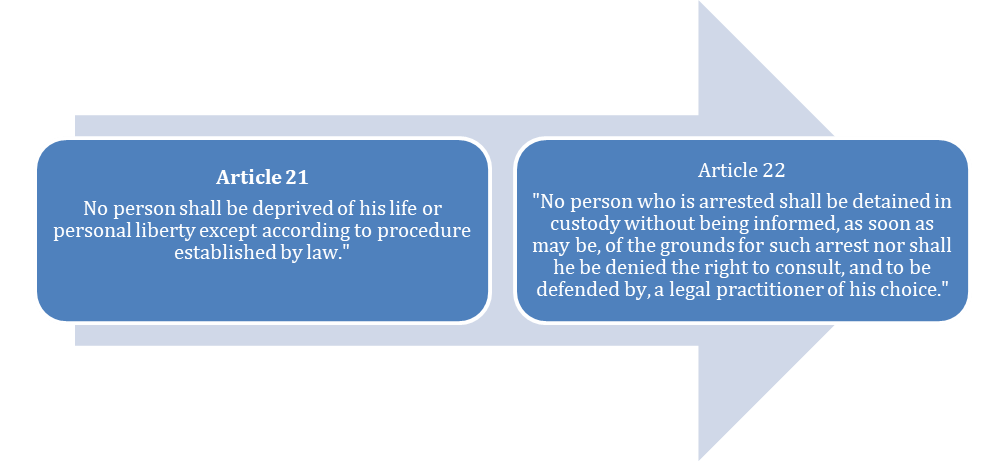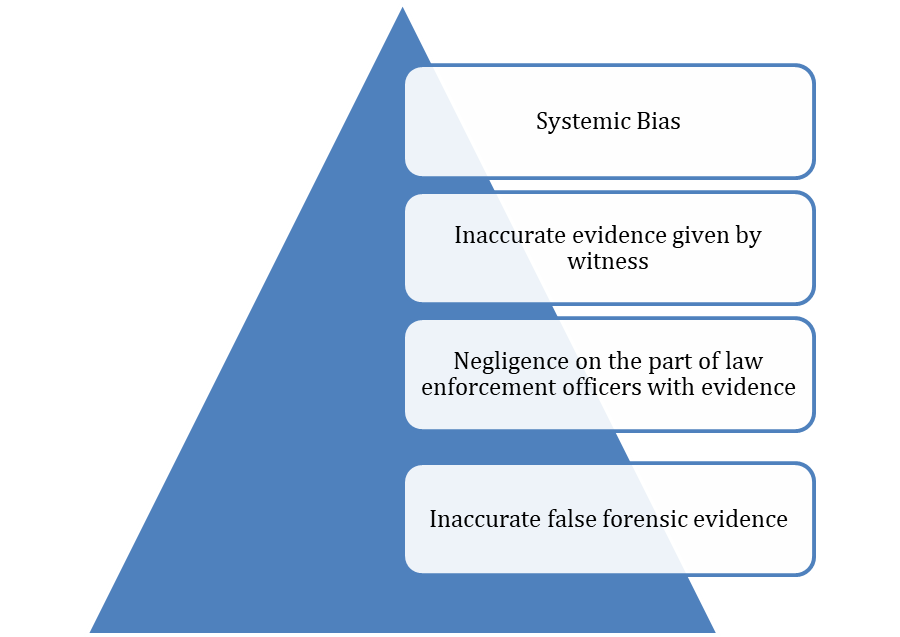Exoneration Project
- Niyam India Foundation
- Exoneration Project
Wrongful Convictions
The somber reality of wrongful convictions clouds the criminal justice system. Wrongful convictions persist despite the measures put in place to guarantee fair trials and shield the innocent, severely harming people, families, and communities.
Wrongful convictions are a serious injustice that deprive people of their freedom and damage their reputations. However, in the face of such injustice, knowledgeable and committed wrongful conviction counsels are essential in putting these wrongs right and giving those who were wrongfully convicted their life back.
Statistics
According to the yearly statistics report “Prison Statistics India” from the National Crime Records Bureau, as of December 31, 2019, there were 1, 44,125 (30.11 %) convicted and 3, 30,487 (69.05 %) under-trial inmates in Indian jails. According to a comparison of the Prison Statistics India from 2015 and 2019, there has been a 1.8% increase in the number of convicts awaiting trial in the last four years.
LEGAL FRAMEWORK
Fundamental Rights
The Indian Constitution guarantees the right to life and liberty under Articles 21 and 22, respectively, through Chapter III, which covers fundamental rights. A person can file a case with the Indian Supreme Court under Article 32 and High Court under Article 226 if they believe their fundamental rights have been violated due to an erroneous conviction.
A person has the right to file a claim for compensation in court; numerous cases have been ruled by Supreme Courts and High Courts, but the principles guiding the right to compensation are not predetermined

Major Causes for Wrongful Convictions

| Case | Precedent |
| HussainaraKhatoon v. State of Bihar (1979) AIR 1369 | This is a well-known case involving numerous Bihar convicts who are awaiting trial. Many of the detainees have allegedly remained in jail for five, seven, or nine years without even receiving a fair trial in a court of law, according to a writ petition that was filed with the Indian Supreme Court. In this instance, it was noted that the indigent inmates were unable to secure bail and were subjected to the inequities of the criminal justice system.
In this historic decision, the court determined that, in accordance with Article 21 of the Indian Constitution, every prisoner has a fundamental right to a prompt trial.
The Apex Court gave the Following Guidelines-
|
| A 19-year-old kid was accused in this instance under the Terrorist and Disruptive statute (TADA), and the sessions court found him guilty of violating the statute. By the time the case made it to the highest court, the youngster had already spent 23 years of his life behind bars due to false accusations. Despite this, the boy was ultimately ruled not guilty and exonerated of all charges. Despite spending 23 years in prison while he was innocent, he received no compensation for it. |
- Counselling and Support Services We provide rehabilitation services to persons who were wrongfully convicted and thereby released from prison to enable them to reintegrate into society and live a fulfilling life. We understand that an innocent person may not always suffer from a conviction; rather, the process itself is the true form of punishment. Even if the court finds the innocent party not guilty, it is extremely difficult for the innocent individual to get over being held throughout a trial.
- Education and Skill Development We provide legal aid services within prisons to educate and represent wrongfully convicted persons.
- Compensation We provide representative services for wrongfully convicted prisoners to appeal before Higher Courts and seek compensation for the irreparable harm caused to their right to a dignified life.It is the state’s responsibility to see to it that these innocent people return to their regular lives. Enough recompense must be given to wrongfully convicted individuals in order to aid in their release. We assist in paperwork and arranging necessary funds for the same.

